Feast Pilgrimages to Israel–Messianic Lessons Learned from Shemitah
Feast Pilgrimages to Israel--Messianic Lessons Learned From Shemitah
Pilgrimages to Israel for the Feasts of YHVH
Question Posed: Are We Suppose to Conduct a Pilgrimage to Israel Today?
The question has been posed and sadly has been incorrectly answered some: Are we obliged to keep Unleavened Bread, The Feast of Weeks (i.e., Pentecost or Shavuot) and Feast of Booths (i.e., Tabernacles or Sukkot) in the Land of Israel (namely Jerusalem), in obedience to Deuteronomy 16:16?
Facebook Arguments Again
This past week, I visited one of our Facebook feeds and happened upon a rather robust exchange by several Hebrew Roots/Messianic friends regarding the three (3) Pilgrimage Feasts and the Torah instruction to celebrate those feasts in Israel./Jerusalem. The exchange apparently began with one rather forceful individual telling her Facebook friends that they were required by Torah to keep the three (3) Pilgrimage Feasts in the Land of Israel each year. Failure to do so, would of course, be a violation of Torah. This individual provided a few chapters and verses where Father instructed us to keep Unleavened Bread, Shavuot (Feast of Weeks) and Sukkot (Tabernacles) at the place where He would cause His Name to be placed (Deuteronomy 14, 16; 26:2); essentially to keep these feasts where Father’s presence would be among us. Wherever the Father instructed His Tabernacle to be erected once we entered the Land of Promise (e.g., Shiloh), and ultimately where His Temple would be established by King Solomon is where His presence was established and we were to keep these three (3) Pilgrimage Feasts at that location.
Needless to say, the exchange was somewhat contentious. At one point in the feed, the individual who started the whole discussion about Torah-mandated Pilgrimages to Israel by 21st century observers for these three Feasts, maligned a very popular and respected Hebrew Roots/Messianic teacher. That teacher somehow entered the discussion and you could easily tell by the words he posted that he was devastated by some of the negative things that individual was saying about him. This teacher tried to defend his reputation, but when the discussion began to focus more on him personally and on his teachings than on the actual topic of discussion, he gracefully bowed out of the conversation.
The thing that hurt me the most about this exchange were the people, no doubt new or inexperience to Torah-keeping, who were devastated to think that they may have been violating Torah by not making the pilgrimage to Israel during those Feasts. Many lamented that they could not possibly afford to travel to Israel with their families three (3) times each calendar year and pay for 16 or more days of lodging and food. The individual who started the conversation suggested possible cost saving-options for making the Pilgrimage more affordable, but like the Pharisees of Yeshua’s day still insisted that it was every believe’rs responsibility, regardless of their personal situation, to make these trips each year without fail.
Many participants in this discussion went to great lengths to prove to this individual that she was taking the pilgrimage instruction out of context, citing obvious facts that the Temple and its services are no longer in existence and that our bodies have become the Temple of YHVH today. But true to many in our Faith Community who read Torah without proper discipleship; without the teaching and leading of the Holy Spirit; and without Yeshua as their example for proper Torah Living, there was no reasoning or humiliation to be found in this individual. It was truly a sad thing to witness.
The Pilgrimage Instruction Given
Deuteronomy 16:16 reads as follows:
Three times in a year shall all thy males appear before the LORD thy God in the place which he shall choose; in the feast of unleavened bread, and in the feast of weeks, and in the feast of tabernacles: and they shall not appear before the LORD empty: (Deu 16:16 KJV)
If you are interested, companion verses to this passage include: Exodus 23:14, 22, 23 and 17.
It goes without saying that the last place Father chose to have these 3 feasts kept by us was in Jerusalem. That was where His Temple was erected and the place where His presence dwelt. Thus in this passage, Father commanded us to appear before Him–His presence–for these 3 key feasts or moedim.
What’s the Deal Here?
So what’s the deal here? The instruction for us to conduct 3-pilgrimages to the seat of His presence (i.e., the sanctuary in Shiloh and then the Temple in Jerusalem) each biblical calendar year is clear. But there are some mitigating factors that come into play here that we must take into account when deciding to keep these 3 feasts according to the literal way it is recorded in Torah.
Mitigating Factors to be Considered
For starters, it is common knowledge that the Temple was destroyed by Roman General Titus in 68 C.E.. Josephus documents this tremendous event in “War,” 6.4.5-6.4.7. Ezekiel records seeing the glory and presence of YHVH leave the Temple in Ezekiel chapters 8 through 11; this prior to the temple’s destruction and the people taken into captivity. Temple worship and Father’s presence in our midst was the fulcrum upon which this instruction was given and required. Both of these elements are now missing and not present in the Land of Israel.
The Answer is Given
Context-Context-Context
Yeshua Must Be Our Example
Yeshua must be our exclusive example for proper Torah-Living. There is no one else who we should imitate. The Spirit of YHVH rested upon Yeshua as recorded in the 11th Chapter of Isaiah and confirmed by Master in Luke 4:18. Father’s Spirit rests upon He whom the Father chooses to have His presence rest. Generally speaking, that individual who has the Spirit resting within and on them must be of a pure heart (Matthew 5:8) and a clean, undefiled heart and soul (Psalm 24:3-5). We saw the physical manifestation of this in the workings of the Tabernacle whereby every individual who would come to the sanctuary for worship was required to be ceremonially clean while the sanctuary and the attending priests were to be in a perpetual state of cleanliness and purity. Have you heard about the current state of modern Israel? The modern State of Israel is a far cry from being in any semblance of cleanliness. Certainly, the Father’s presence is not resting upon the Land today. Indeed, I believe with my whole heart that Father’s watchful eye and protective hand remains over Israel even today (Deuteronomy 11:11, 12; Psalm 121:4). But to simply take the original Torah instruction to keep each of the three (3) pilgrimage feasts in Israel without keeping full truth of the instruction as it applies today, is in my book, adding to, or maybe even, taking away from Father’s Torah.
Faithfully
___________________________________________________________________________________________________________
Messianic Lessons Learned from Shemitah
The Shemitah and Modern Hebrew Roots
When we consider the Torah instruction related to the Shemitah (or the Sabbatical Year) and the Jubilee Year that was given to Moses (i.e., Moshe) on Mount Sinai, which he then passed down to us, I was compelled to reflect upon the significance these two great observances have to our modern Hebrew Roots Community. It turns out that last Sabbath’s Torah Portion–Parashah 32–entitled B’Har, or “On Mount,” dealt with this very subject. The section of this portion that speaks to the Shemitah and the Jubilee is contained in Leviticus 25:1-26:46 and Deuteronomy 15:2-10. It must be mentioned, however, that without the corresponding Brit haDashah reading, found in Luke 4:16-21, the relevance of these two great observances to Torah Observant Believers in Yeshua could easily become lost in rote, blind obedience to an instruction that has sadly become widely misunderstood and improperly kept by 21st century Messianics and Jews the world over.
The Popularity of Jewish Things
Have you noticed how popular Jewish names, concepts, words and even teachings have become of late in many sectors of Christianity today? There was a time, not too long ago, that anyone who would bring up anything of a Jewish nature in any Christian discussion or teaching, that individual would more than likely receive the stink eye by anyone who happened to be in hearing range. But today, it’s become a rather theologically sound practice to infuse Jewish terms, names and concepts into Christian sermons and teachings. Or dare I say, Hebrew terms, names and concepts? For as encouraging as this popularity in many things Jewish may appear to some of us, the true Hebrew Roots message is more times than naught overlooked by these individuals who seek to popularize Hebraism to Christianity.
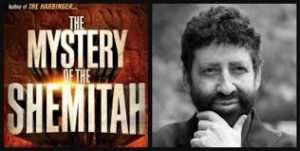
Johnathan Cahn and others were instrumental in introducing Shemitah to mainstream Christianity and Hebrew Roots communities.
I am reminded while reflecting upon this popular wave of Hebraism that seems to have taken Christianity by storm, of the well known Messianic Jewish personality, Jonathan Cahn, who is considered formally a Messianic Jewish Rabbi. Let me take you back just a couple years ago. If you recall, it appears that many Messianic and Jewish communities in one form or another observed Shemitah from September 2014 to September 2015. During this same period we had a series of, what many Hebraic Roots and Christian teachers called Blood Moon sightings. The combination of these two events seemed to create quite a hubbub throughout both Christian and Messianic circles. And it was during this time frame that teachers and preachers such as Jonathan Cahn climbed the rapid ladder of financial success, so to speak, by capitalizing on the Torah instructions surrounding the Shemitah. Sadly, the true message and relevance of Shemitah was lost in all the hubbub and excitement.
Being transparent, I did not read any of Mr. Cahn’s books or listen to any of his teachings on the Shemitah and Blood Moons. What I did see was the huge impact that these Hebraic Roots teachers and preachers had on both communities. If you recall, the primary focus of Cahn and teachers like him was to warn of pending doom and gloom to come upon the inhabitants of Israel and the whole earth because the nations have violated Torah’s Shemitah instructions. Bear in mind, such a pronouncement is pure speculation and frankly not biblical since Shemitah only pertains to the people living in the Land of Israel. It should also be mentioned that no one truly knows when the Shemitah and Jubilee are supposed to occur. The Shemitah and Jubilee time frames were forever lost to the memory of the Jewish people after the destruction of Herod’s Temple in 68 C.E. and after the Sanhedrin was disbanded and exiled in 359 C.E.
I would give those Jews living in the land of Israel who attempted to keep the Shemitah credit for at least trying to obey Torah, despite the rabbis having no true knowledge of when Shemitah was to occur.
The Missing Element of The Shemitah and The Jubilee
There are a couple problems with this whole Shemitah instruction as it relates to the modern Hebrew Roots/Messianic Community.
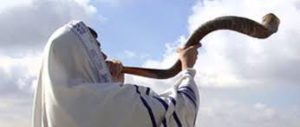
For Truth-seekers, the Shemitah and Jubilee are about Sabbath Rests, Faith, Miracles, Restoration and Redemption.
To begin with and as I stated earlier, no one truly knows when the Shemitah year is supposed to occur. The Orthodox Jewish website www.chabad.org projects the next Shemitah year cycle to be 9/7/2021 through 09/25/2022. Now, where the rabbis got those dates from, I have no idea. My guess is that they believe they have the authority to determine Father’s appointed times, as they have shown similarly in their adjusting the beginning of the biblical calendar year from Nisan 1 (i.e., Aviv 1) to Tishri 1 (i.e., the 7th month). The problem with anyone tinkering and moving around Abba’s appointed times is that He told us not to. Father instructed:
What thing soever I command you, observe to do it: thou shalt not add thereto, nor diminish from it. (Deu 12:32 KJV)
Is rabbinic authority challenging this commandment when they establish when the Shemitah and other set-apart days occur during His biblical calendar year? If not, then it certainly seems that they are getting close in my opinion.
The other thing is the application of the Shemitah. In other words, does the Shemitah have universal application to all Torah Observers scattered throughout our 21st century world? And the answer to this rather loaded question is: yes and no. Let’s think about this for a bit.
Torah Portion 32–B’Har–Leviticus 25-26:46
I was blessed to have come upon the Shemitah instructions in last week’s Torah Portion: Parashah 32, B’Har (On Mount), Leviticus 25:1-26:46. Upon studying this section, I was reminded of that period between 2014 through 2015 when both the Christian and Hebrew Roots worlds were smitten, essentially obsessed, over Shemitah. It seemed as though everyone wanted a piece of Shemitah. The Christians wanted to somehow link to Shemitah because of a popular curiosity associated with Jewish things and multiple teachings that circulated throughout Christendom that violations of the Shemitah commands in Torah would result in worldwide death and destruction.
I guess it’s only fair to say that Hebrew Rooters came out in droves wanting a piece of Shemitah because observance of Shemitah was a Torah instruction given to us by YHVH; among other reasons I would imagine. So, many of us felt compelled to literally observe it. Therefore, if we owned and operated a farm, we did not work the farm that entire year that was designated as the Shemitah. Then we were moved to forgive any debt that was owed to us, if indeed we held any debt. In all honesty, however, I heard very little about debt forgiveness during that period.
I understand that in the Modern State of Israel proper, many farmers actually observed the Shemitah and did not work their lands that year. For all intents and purposes, it was somewhat of a heady and enlightening time to say the least.
Which brings me to that yes and no answer to the loaded question I proposed to you just a bit ago regarding the application of Shemitah to the 21st century Torah Observers who are scattered throughout the world. I already mentioned that no one today truly knows when Shemitah is to occur. Anyone who says they do, is not being truthful–or just misinformed maybe. Anyone who says that it doesn’t matter and that we should just start observing Shemitah whenever the urge hits us is frankly adding to Torah. The clock for Shemitah began the year we entered the land of promise. While we sojourned in the Sinai Desert, we did not keep Shemitah. In fact, YHVH instructed Moshe while Moshe was on Mount Sinai to tell the people of Isra’el: “When you enter the land I am giving you, the land itself is to observe a Shabbat rest for YHVH” (Leviticus 25:1; CJB). And from there YHVH goes on to delineate the essential elements of Shemitah.
Therefore, it is clearly stipulated in this section of Torah that Shemitah observance is specifically tied to the Land of Israel. In other words, Shemitah is not applied to, tied to, or to be practiced anywhere else on the planet. To do so would be bordering on adding to Torah which Father strictly prohibited (Deuteronomy 4:2; 12:32).
Zeal is Good, But Zeal Can Also Cause Us to Get Off Track
I get that many of us in Hebrew Roots desire to live Torah perfectly and to the absolute best of our abilities. So some of us tend to be zealous in our keeping of Torah. Our zeal for Torah, however, must not override our sense of reason and understanding. I mean, it’s one thing to keep Father’s Feasts and the weekly Sabbath and the Food Laws which are universal in their applicability–that is, there are no but’s or what if’s associated with them. We are to obey them without question and employing a modicum of zeal in keeping them can go a long way towards solidifying our relationship with the Almighty.
When it comes to other Torah instructions such as Shemitah and Jubilee and Messianics making pilgrimage feasts to Israel and sacrificing lambs on Passover (and these are stories for another time), we must consider context and understand to whom these instructions were originally given to and then determine how they would apply to us today. Many such Torah commandments applied strictly to the Land of Promise or to Temple worship. Thus it goes without saying that before one goes off half-cocked to keep specific Torah instructions such as Shemitah on your Virginia homestead, or embark on a pilgrimage to Israel to keep the feast because required us to keep the three (3) Feasts of Unleavened Bread, Shavuot and Tabernacles/Sukkot at the place where He placed His Name, we must first determine if those specific instructions apply to us today.
In the case of Shemitah, the instructions given in Leviticus 25 clearly tell us that this instruction applies to those of us living in the Land of Promise. Furthermore, if we were to live in the Modern State of Israel today, we still would not know when Shemitah is to take place, apart from the made up dates given by the rabbis. So no: we do not keep Shemitah outside of the Land of Promise and no, we do not know when Shemitah is supposed to actually take place.
Now, is it a crime for someone living outside of Israel to exercise Shemitah principles when it comes to their farm land? No. In fact, it’s a fantastic principle to follow. However, in following Shemitah principles outside of the Land, one must be very careful not to elevate that practice to Torah-level authority. In other words, one should not demand that others do likewise as if their refusal to do so would violate Torah because it would not violate Torah. You know how some of us can be when it comes to certain Torah instructions?
Context–Context–Context
We must be ever so care to ensure that we honor and keep Torah in proper context and have a firm understanding as to why we are keeping the instruction and to what end we are keeping the instruction. The problem with keeping and living Torah out of context is that we will ultimately end up adding our own personal spin to Torah (which we’ve been instructed not to do). If not for ourselves in terms of how we keep Torah, let us always be cognizant of the young and impressionable of our Community. So many of our newbie jump out of the frying pan of religion, only to be caught up into the fire of religion yet again.
The other think we should be aware of is that when we go out of our way to keep and practice Torah outside its truest context, we essentially feed into our Christian cousins’ accusations that we are all legalistic in our Faith-keeping and that we are attempting to purchase our salvation by works of the Law. Well, I’ve never been afraid to be called legalistic; I tend to see that as somewhat of a badge of honor, if the accusation is being made within the context of my being obedient to Torah as we are meant to keep it (e.g., keeping the weekly Sabbath, the annual Feasts of YHVH and the food instructions). But when we as a veteran Torah Observer insist and teach others to practice Torah out of context, then the legalistic allegations may not be too much of a stretch. We saw true legalistic religion practiced by the Pharisees of Master Yeshua’s day. This band of controlling religious leaders erected a religion around Torah and in so doing, enslaved the Jews of Yahoshua’s day, and one could argue, Jews through the last couple millennia.
I would be less inclined to believe that true Hebrew Rooters/Messianics are keeping Torah for purposes of purchasing their salvation and place in the Kingdom of YHVH. Virtually everyone I know who keeps Torah in our Faith Community does so because they realize that Torah has not been done away as pop-Christianity has teaches. On the contrary, we keep Torah in its proper context because wish to please our Heavenly Father by being obedient to His instructions. There will always be some in our Faith Community who will insist on erecting personal walls around Torah and creating traditions and practices that ultimately trumps the authority of Torah, such as we saw happen with Rabbinic Judaism. When we give into the adding and subtracting of Torah we run the risk of losing perspective and before you know it, Master Yahoshua and His teachings go out the door; we become Pharisaical in our worldview; and do indeed take on a belief system that we are purchasing our salvation and place in the Kingdom of YHVH.
This is human nature when it collides with Torah. That is why it is so important to die to self and allow the Holy Spirit–the Ruach HaKodesh–to fully operate in our lives. When we allow the Holy Spirit to take over, there is no risk of behaving contrary to Torah. The Holy Spirit is the Spirit of Truth that rested upon our Savior and that our Master promised us (John 14:17; 15:26).
Master promised us that He would have His Father send us His Comforter and The Comforter is also the Spirit of Truth that will guide us into all truth (John 16:13).
I submit to you here today that if our community–individually and collectively speaking–were to make it a practice to fast and pray that Father grant us a greater unction of the power and authority of His Holy Spirit, our keeping of Torah would be much more meaningful and spot. Our obedience to Torah would be more in line with the example Yeshua provided us and would better glorify our Father in heaven.
The Spirit and Truth of the Matter
So what then must a Torah Observant Believe in Yeshua Messiah take away from the Shemitah and Jubilee instruction if in deed we do not know when these set-apart days to occur and we live outside the Land of Israel (or in the Land of Israel for that matter)? What is the Spirit and Truth of Shemitah and Jubilee?
The grander point to keeping any commandments, especially Feasts of YHVH and set-apart days such as the Shemitah and the Jubilee years, is the worship and glorifying of YHVH our Elohim. In other words, it’s all about Father. He must always be the focus of our obedience and keeping of His instructions, with an eye on Yahoshua our Messiah, who is the end–the bottom line–the end goal if you will–of Torah for righteousness to everyone of us in our Faith Community (Romans 10:4).
Lessons to Be Gained From Shemitah Over Blind Ritualistic Obedience

Although the concept of Shemitah is universally brilliant, the Shemitah instructions applies only to the land of Israel.
The Shemitah and its grand sister year, the Jubilee Year, when they were passed down to us by the Almighty through Moses, taught us to respect the Land that Father gave to us by invoking a period of rest for the land for an entire year. In that time, we were to not work the land, which included no planting, pruning or harvesting of crops and produce. What were we to do for food during that Sabbatical Year period we asked? Well, we were to trust and rely upon the providence and provision of our Heavenly Father. As the land was allowed to rest all those months, it would produce food on its own. We were to then live off that spontaneous produce, if you will, as well as live off of any provisions we held from the previous harvest period to sustain us. Speaking of the previous harvests, Abba would miraculously increase our harvests from the previous years (Leviticus 25:19, 20).
Thus we were being taught to live by Faith in the Almighty’s provision and providence.
The other lessons were being taught was discipline and obedience. Discipline would come into play as an outcropping (no pun intended) of our Faith in Father’s provision. The natural tendency would be to turn to the work of our own hands to provide for our sustenance. So we would ignore Father’s commandment to let the land rest every Sabbatical Year and work the land in order to provide food for our families, which history bears out that we actually did do. As a result of our disobedience and lack of discipline in honoring the Shemitah, we were taken into Babylonian Captivity equivalent to the number of Shemitah Years we ignored (reference II Chronicles 36:21; II Kings 17 and 25).
The Shemitah also taught us about forgiveness of debt (Deuteronomy 15:2-10), which lesson was a precursor to the forgiveness for sins that we would receive from YHVH because of the sacrificial work of Yeshua on the execution stake.
The Shemitah taught us about the importance of Sabbatical rest, whereby we turn our attention away from the day-to-day grind of everyday life–in the case of Shemitah, the grind of farming, and turn our hearts and minds and souls to YHVH our Elohim. We of course see this embodied in the weekly Sabbath rest and in Father’s holy Feasts that we enjoy. There are times in Father’s calendar when he simply wants us to stop what we’re doing and give Him our full attention and adoration.
The Shemitah also taught us of the importance and sacredness of the Land. Torah reveals to us that YHVH cares for the Land of Canaan and His eyes are always on it all the time (Deuteronomy 11:12). Now, that’s not to say that the Jews, or for that matter, any one of us should worship the Land of Israel. The only person we are to worship is YHVH our Elohim. The point is that it must become common knowledge for us that Father has a special attachment to the Land that He has given to us His children.
The companion year of the Jubilee, which also involves the Land, serves to teach us the principles of redemption and restoration. Torah teaches us that during the Jubilee–which occurred every 50-years–that being once every 7-Shemitahs–all owned property (i.e., farm land exclusively) was to be returned to the original owner (Leviticus 15:23-28). Essentially, land could not be permanently sold. Thus, in the event that we lost our family-inherited land–for whatever reason, and we were unable to redeem it or purchase it back from the new owner leading up to the Jubilee Year–we would have the family land restored to us in full by the grace and providence and provision that the Almighty factored into His Torah. I know, doesn’t make any sense to our western sensibilities–that being, once you sell your land and the new owner take possession of that land, they should be able to keep and do whatever they want with that land. But that’s not the way Father sees things. Father’s grace is amazing and fortunately, He writes the rules. Unfortunately, men like to come in the midst and re-write Father’s rules.
Thus the concepts of redemption and restoration, which are embodied in the Jubilee Year, foreshadowed Father’s Plan of Salvation, the Gospel of the Kingdom of YHVH, and in the mission and teachings of our Master Yeshua Messiah.
These are just some of the things that we are to take away and apply to our lives as it relates to the Shemitah and the Jubilee. It’s not about forcing a keeping of Shemitah or Jubilee which truth be told, we cannot properly do. It is, however, about Yeshua’s work on the execution stake to free us from religion and the scourge of sin and rescue us from eternal death. It is about trusting Father to meet our day-to-day needs. It’s about living disciplined and obedient Torah-based lives. It’s about loving and watching out for one another. It’s about loving, serving, honoring and worshiping the Creator of the Universe.
The False Hope of Imitation Christianity
If you've been called and chosen, this message is for you. But it's not for everybody. Questions: What does John 8:32?--You shall know the Truth and the Truth shall set you free. We are to get our information from Scripture. Do you know what you worship? What's the...
Overcoming Obstacles to Faith-Part 3-Learning From Ancient Israel’s Mistakes of Not Finding Contentment
Picking-up From Part 2 of the Series My goal in this message is to pick-up where I left off from my previous two messages on overcoming obstacles to belief. Quick Review of Parts 1 and 2 In Part 1 of this series, we looked at overcoming...
Overcoming Obstacles to Belief Part 2-Learning From Ancient Israel’s Mistakes of Murmuring/Complaining
Goal: Last week I presented to you an overview of the important differences that exists between believing IN YHVH verses believing YHVH and how life can and does create obstacles to our believing Yah. Also recall that I discussed two behaviors that proved to...
Overcoming Obstacles to Belief–Part 1: Learning From Ancient Israel’s Mistakes
Goal: What I intend to address in my message today is something that I believe is crucial for our (1) making it into the Kingdom of Yah; (2) successfully walking out our Faith in Spirit and in Truth; and (3) living the life abundant that Yeshua our Master...
Should Messianic Torah Observers Keep Thanksgiving? The Re-Broadcast
Should Messianic Torah Observers Keep Thanksgiving? In this installment, we reflect upon Torah-Keeping Believers in Yeshua celebrating Thanksgiving: Is it a terrible reminder of genocide that New World Settlers brought upon Native American Indigenous Peoples, or a day...
Lashon Hara-The Sin You Never Knew You Were Committing-Torah Reading Numbers 12:1-15
Verse-by-Verse Discussion Miriam and Aharon Engage in Subversive Conversation Verse 1—Two of Moshe's family members, Miriam and Aharon, engaged in some subversive conversation against Moshe. Moshe apparently married an Ethiopian woman which seemed to outrage the...
Finding Contentment in our Faith–Torah Reading-Numbers 11:1-35
Finding Contentment in our Faith--Torah Reading--Numbers 11:1-35 Verse 1--The peoples' complaining or murmuring (complaining about their hardships openly in Taberah or The Place of Burning) displeased Yah which led to His wrath coming down upon the people...
What Did Paul Mean by Being Under the Law–Part 1
Goal of this Post “For Yah shows no partiality (that is, Yah shows no favoritism). For all who have sinned without the law will also perish without the law, and all who have sinned under the law will be judged by the law. For it is not the hearers of the law who are...
Paul and the LGBTQ Community–A Messianic Perspective
The Indictment Against Homosexuality In our ongoing quest to untangle and clarify some of the more difficult and challenging Pauline writings, (of late making our way through the Book of Romans), I want to next tackle Romans 1:26-27. Now, most of us should be...
Feast of Tabernacles and the Kingdom of God in You
The Feast of Tabernacles and the Kingdom of God (of Yah) in You My goal in delivering this discussion to you here today is to communicate to you another way of looking at and understanding the Kingdom of Yah. Another perspective. Another angle. Another Truth....
Yom Kippur (Day of Atonement)–A Messianic Torah Observer Perspective
Introducing Yom HaKippurim (aka, Yom Kippur or the Day of Atonement) Instead of trying to figure out what the Day of Atonement/Yom Kippur/Yom HaKippurim is about through hearsay, public discourse or opinion, what do you say we delve into the riches of Torah to get...
Yom Teruah’s Greatest Truths and Mysteries (Revealed)
Yom Teruah's Greatest Truths and Mysteries (Revealed) Today I want to expand our understanding of Yom Teruah (aka The Day of the Blowing of Trumpets or simply the Day of Trumpets) from the day being just another one of the 7-annual Feasts of YHVH; just that...
Polygamy and the Bible–A Messianic Perspective
My Interest Piqued In my studies of this past week’s Torah Reading, I was drawn to Deuteronomy 21:15-17. Many modern English bibles generally entitle this passage something akin to “The Right of the Firstborn.” That being said, this short passage really is about the...
Picking Up and Moving Forward With TMTO
Update on TMTO (Special post without any fanfare and promotion)--Where we are today and where we'll be going. Discontinuing Live-Stream and Why. The failure of the Livestream. Non-committal group of individuals. Newsletter failures. Loss of focus on the original...
Torah Reading 48–Shofetim–Judges–Reading Outline
This week's Torah Reading is contained within Deuteronomy 16:1--21:9 and is entitled Shofetim. In English, Shofetim means Judges. If one were summarize the content of this reading I guess it could be described as a discussion of Yah's established civil...
The Righteousness of God Revealed From Faith to Faith—Its True Meaning and Reality for God’s People
Today’s discussion is entitled, “The Righteousness of God Revealed From Faith to Faith—Its True Meaning and Reality for God’s People.” Why The Church Loves This Romans 1:17 Fundamentalists; traditionalists; and evangelicals absolutely love this passage. Why? Because...
Jews Before Gentiles?
Today’s discussion is entitled, “Jews Before Gentiles? How Does that Work?” And the biblical basis for our discussion this evening is found in Romans 1:16 which reads: 16 For I am not ashamed of the gospel of Christ: for it is the power of God unto salvation...
Torah Reading 46–Ekev (Because)–A Focus on the Kingdom of God
Highlights and Comments Shalom Saints. This week's Torah Reading is entitled, "Ekev," or "Because." The portion covers Deuteronomy 7:12-11:25. I wish to share with you some of my thoughts and reflections on the many life truths that I drew from my study of this...
To Whom Do You Pray?
Who do you pray to and worship and give thanks? Yeshua? YHVH? Both? Is it Biblical to pray to and worship Yeshua as so many Christians routinely do? In this installment of the Messianic Torah Observer, we will continue our review of the Book of Romans and Paul's...
Messianic Sainthood–Paul and the Book of Romans
Paul Calls His Roman Readers Saints. What Gives? Our next challenging Pauline passage of the Book of Romans is found in chapter 1 verse 7 and it reads as such: "To all those in Rome who are loved by G-d and called to be saints: Grace to you and peace from G-d our...
Chevra Kadisha-Honoring the Jewish Dead
An Intriguing Article I recently became intrigued by an article I came across on the "My Jewish Learning" website. The article was entitled: "Chevra Kadisha or Jewish Burial Society." It was written by a Rabbi Joseph Telushkin. And yes: I do from time to time visit...
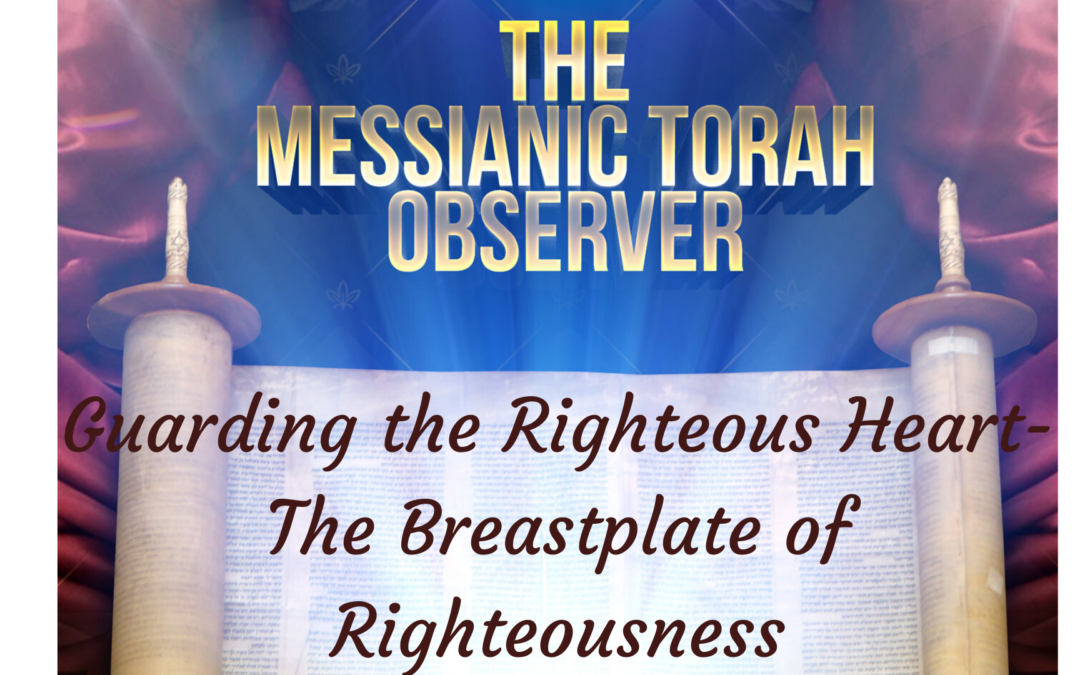
Guarding the Righteous Heart–The Breastplate of Righteousness–Paul and Hebrew Roots Series
How does the Child of Yah put on and use the Breastplate of Righteousness? Yeshua taught us how and we discuss in detail how to don and use this vital piece of spiritual armor: The Breastplate of Righteousness.
Putting on God’s Image-The Belt of Truth-Part 1 of the Armor of God Series
Ephesians 6:11-18—The Armor of Yah Famous passage of Scripture that most evangelical and fundamental Christians know and understand from a denominational standpoint. In fact, whole ministries have been launched and based upon this passage alone. And the focus seems...
Living the Life of a Priest of God–Yeshua-focused Torah Discussion–Torah Reading 91
Living the Life of a Priest of God (of Yah)--Torah Reading 91 Leviticus 21 Ezekiel 44:25-31 Luke 11:30-44 ________________________________________________________ Leviticus 21--Section Verse Study--Laws Concerning the Levitical Priests Know that you are special in...
Is Torah-Keeping Necessary For Salvation?
This week’s Torah Reading is about the Holiness Codes that Father provided to the Hebrews in order that they be set-apart from the nations of the world. These holiness codes remain in effect for every disciple of Yeshua and are of salvific expediency.
Obedience Versus Faith–Paul and the Book of Romans Series
Link to My Post Entitled: Messianic Duty During Times of Global Crises. This is Obedience Versus Faith--Part 18 of Our Paul and Hebrew Roots Series In preparing to discuss our next challenging Romans’ passage—1:16—I happened upon 1:5: an equally challenging passage...
Torah’s Forbidden Sexual Relationships-Yeshua-Focused Torah Studies–Torah Reading 89–Leviticus 18
This is Torah's Forbidden Sexual Relationships--Yeshua-Focused Torah Studies-Torah Reading -89--Leviticus 18 The underlying theme of our Torah Reading this Shabbat is Sanctification: Being Sanctified unto YHVH. Sanctification is that internal, spiritual...
Animal-Blood-Sacrifices–Torah Reading 88–Leviticus 17:1-16
Animal-Blood-Sacrifices Leviticus 17:1-16 Unpack this Torah Reading Verses 3-4 Prohibition against the slaughter of domesticated animals outside the Tabernacle System. The English term "kill" in Hebrew is SHACHAT {Shaw-Khat} which is rendered slaughter in...
The Book of Romans and the Gospel of God-Part 17 of the Paul and Hebrew Roots Series
Goal: This is “The Book of Romans and the Gospel of God—Part 17 of our Paul and Hebrew Roots Series.” Today we will begin our extensive study of the many challenging Book to the Romans passages by examining one of Shaul/Paul’s foundational doctrines....
The Day of Atonement-Yom Kippur-Torah Reading for 6-6-2020
Parashah 87--Leviticus 16:1-34--Day of Atonement-Yom Kippur-Torah Reading for 6-6-2020 Father Affirms and Enforces His Holiness (vss. 1 & 2) The transgression of Nadab and Abihu (Leviticus 10) led to Abba re-affirming that the Holy of Holies was not a place...
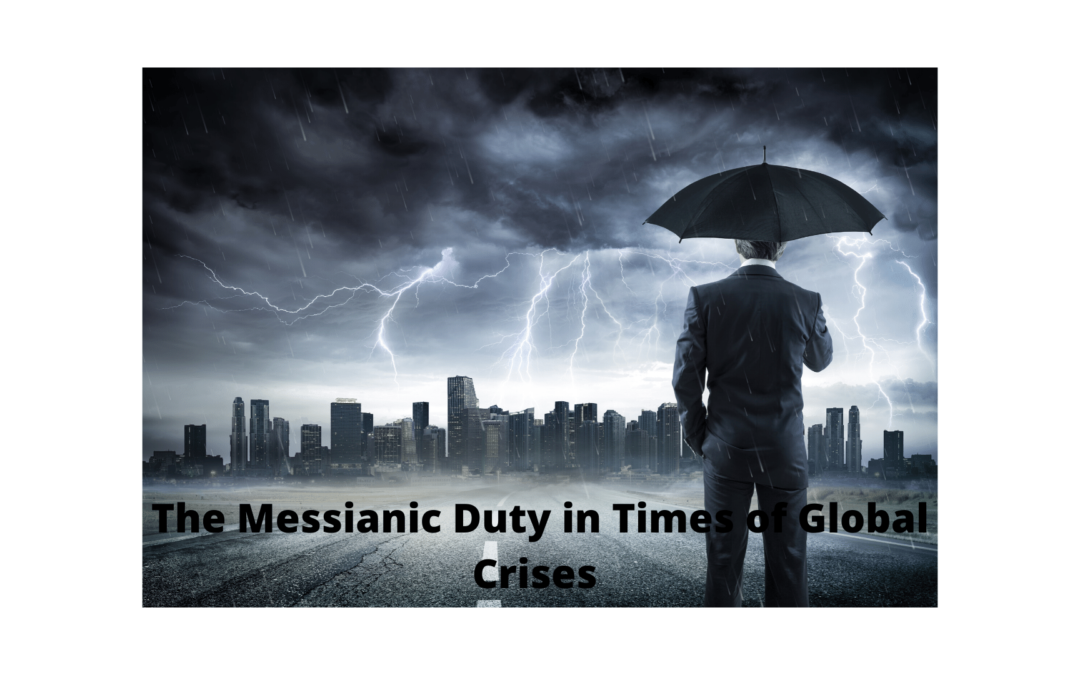
The Messianic Duty in Times of Global Crises
Given all the chaos and turmoil that is ongoing in the world today, I was led to talk to you today about duty. Specifically the Messianic duty in the midst of global chaos. Are we as Messianics required to put our two-cents towards fixing the clobal crises that are...
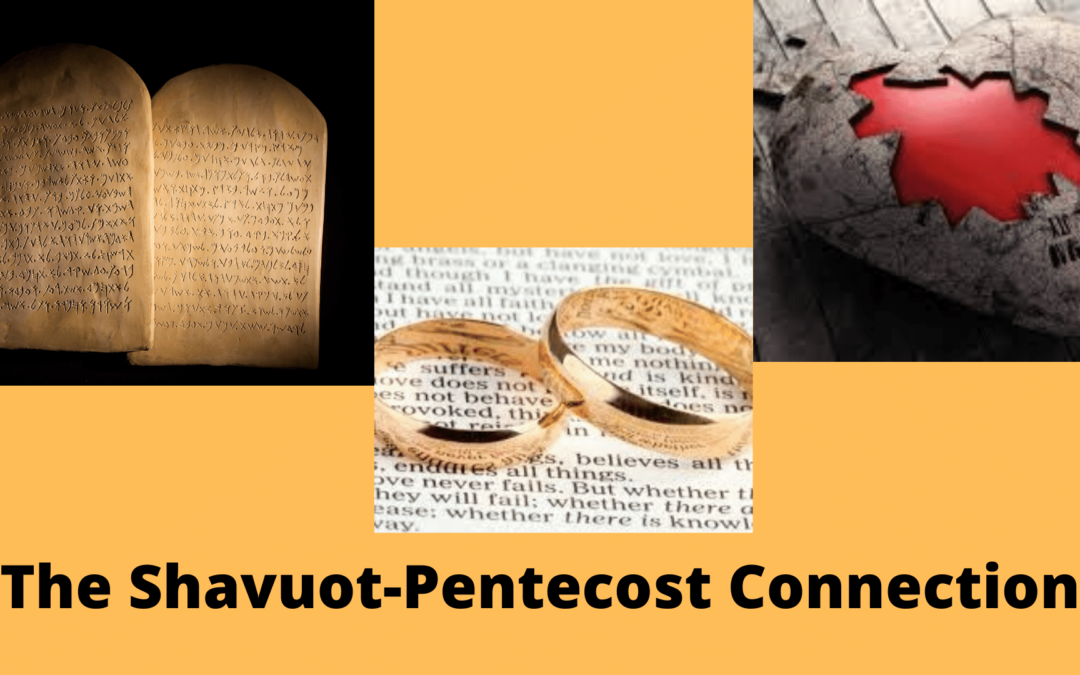
The Shavuot-Pentecost Connection
Two-Competing Schools of Thought Regarding Shavuot and Pentecost When we talk about Shavuot and or Pentecost there are essentially two-prevailing schools of thought and understanding. Interestingly, these two schools or lines of thought are often at odds with one...
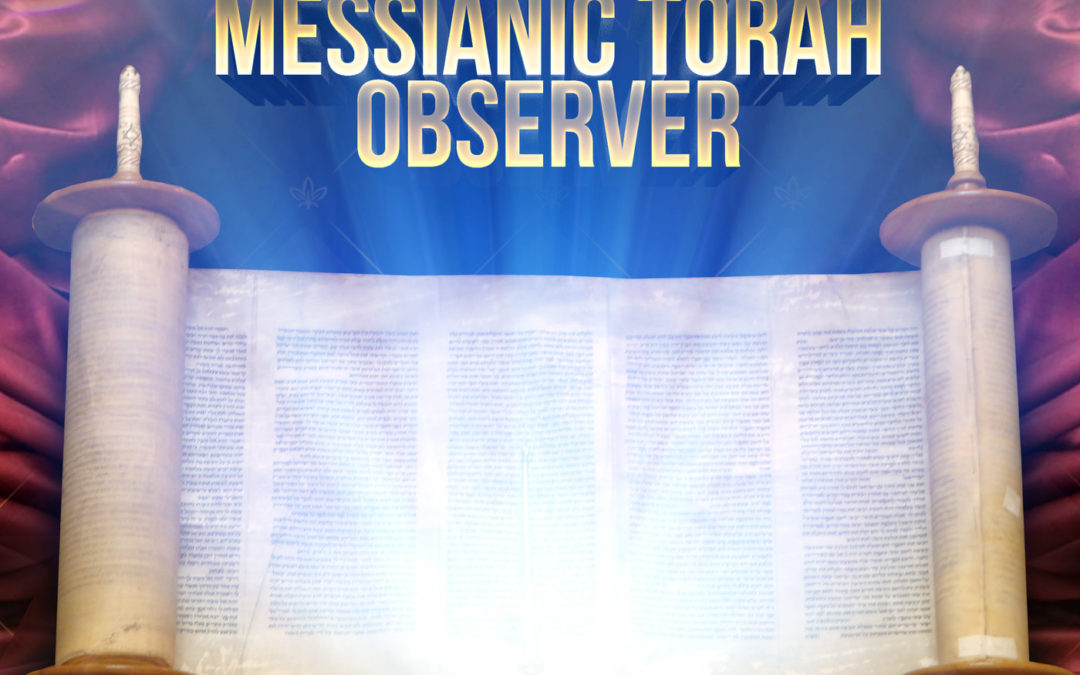
Shavuot 2020-When is It? How Did We Arrive at the Date? Do We Still Keep It ?
Explanation for this post As I record and post this installment of TMTO we are on the 4th day of the 3rd Month of the Creator's Calendar Year according to the observational calendar and the 5th day of the Month Sivan according to the Hillel's calculated...
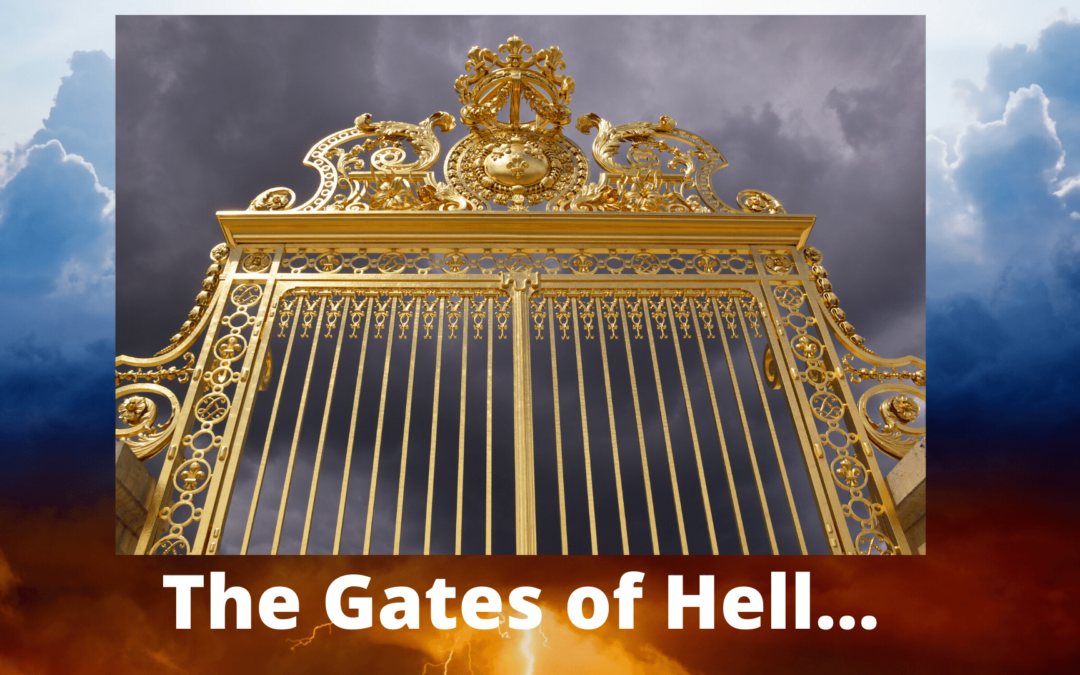
The Gates of Hell
The Gates of Hell Today I want to discuss the enemy’s goal to destroy and hinder the Creator's Plan of Redemption, Restoration and Salvation. It will become the purpose of this discussion to examine how the enemy was defeated by Master Yahoshua (Yeshua) Messiah and to...
The Book of Romans-To Whom Was It Written?
Our Purpose for This Post To whom was the Book of Romans Written? We know quite a bit about the author. But we may not know much about the so-called Romans or the Roman Church. Unfortunately, our understanding of who they are may be influenced by our...
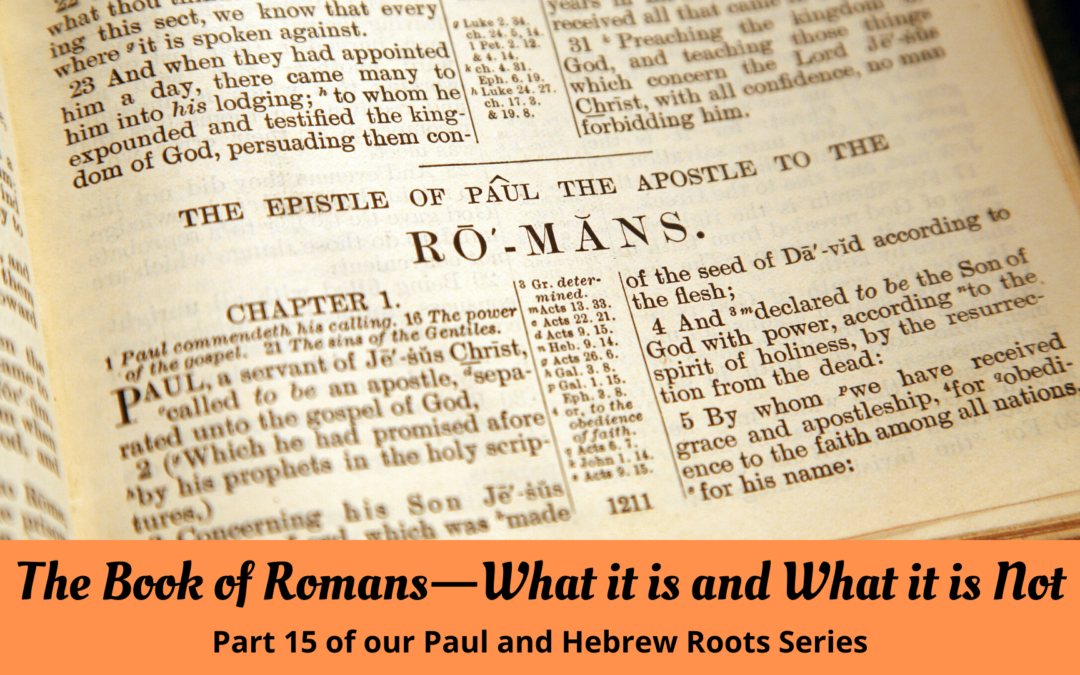
The Book of Romans-What it is and What it is Not–Part 15 of the Paul and Hebrew Roots Series
In this installment we resume our Paul and Hebrew Roots Series with a brief introduction to the Book of Romans. We discuss what the Book of Romans is, and what it is not.
The Niddah Laws–Still in Effect Today ?
The Question of Niddah One question that seems to pop-up a lot from members of our Faith Community has to do with the Laws related to Niddah. Are the laws of Niddah still valid for today’s Torah Observant Disciples of Yeshua Messiah? And in case you aren’t familiar...

Mark of the Beast: What Are You Going To Do When They Come For You?
The world’s power-brokers are suggesting implementing a tracking mark to distinguish those immune to the current virus from those not. Mark of the Beast? What will you do when they come for you?
The Feast of Unleavened Bread: A Ridiculously Long Week
My Struggle With Time One of the many things I struggle with in this life is the issue of time.Time is an enemy. It is often stressful. There never seems to be enough of it to go around. Time moves by so swiftly. And I often find myself fearful of wasting it; losing...
Our First Passover–An Overview of the First Passover Exodus Chapters 1 through 12
Exodus 1 70 blood relative of Jacob enter Egypt-->Joseph dies as well as the Patriarchs. Israelites grow in number. A pharaoh who did not know Joseph enslaves the Hebrews, yet the Hebrews flourish in number. Pharaoh orders every male infant be cast into the...
Sins Committed by Mistakes are Still Sins–Torah Reading 77
Vayikra 4:1-35; Ezekiel 18:1-18 Revelation 5:6-10 Unintentional Sins Unintentional sin may be better defined as acts of unfaithfulness; sins committed without knowledge; or sins resulting from carelessness (such as manslaughter that may result in the guilty person...
Rosh Hashanah Happy Biblical New Year and Guarding the Month Aviv
The Command to Guard the Month of the Aviv First Day of the Month of the Aviv and the head of the Biblical New Year--Rosh Hashanah; Month of Nisan in Jewish circles. We must first understand what it is we're guarding. Why is it important? What it's composed of. We...
The Coronavirus Pandemic in Relation to God’s People
Fear and uncertainty has gripped the world. Widespread infections (Italy just announced 600+ deaths in one day; politicians and celebrities infected) Civil liberties are at risk of being severely curtailed or eliminated altogether. Personal and business incomes and...
The Brazen Laver–The Anointing Oil–Sacred Perfume–Messianic Reflections on Torah Reading 68
The Brazen Laver The Brazen Laver would sit between the Tabernacle and Brazen Altar. The Levitical Priests would be required to wash their hands and feet prior to entering the Tabernacle or facilitating/tending to the sacrificial offerings on the Brazen Altar...
The Significance of the Half-Shekel Ransom Offering to Messianics Today–Reflections on Torah Reading #68
The commandment given to the Hebrews by YHVH that they give a half-shekel ransom offering at the time of census holds tremendous prophetic and spiritual significance for today’s Messianic.
Living Deceptively in the Service of God Results in Shame and Disgrace All Around–Reflections on Malachi 1:11-2:7
YHVH Outs His Chosen Ones Because the nation had despised the true worship of YHVH, YHVH Tzva'ot informed the Hebrews that their failure to properly worship Him as He had prescribed would not be ignored. Despite the people's outward deceptiveness in worship of YHVH,...
The Golden Altar of Incense–The Ministries of Yeshua Messiah and the Prayers of the Saints–Torah Reading 67
Welcome back my friend to our discussion on this week’s Torah Reading from the Triennial Torah Reading cycle. This week’s reading is found in Shemot (Exodus) 30:1-10. I’ve entitled this study: “The Golden Altar of Incense--The Heavenly Ministry of Yeshua Messiah and...
Plans for Consecrating the Levitical Priesthood and What it Means to Messianics Today
The consecration of the Levitical Priesthood as featured in this week’s Torah Reading foreshadowed the role we–Messianics-are appointed to fulfill as Melchizedekian Priests under the High Priesthood of Yeshua Messiah.
Reflections on Torah Reading 65–The Garments of the Levitical Priests
Parashah 65--"You are to order…"--Shemot 27:20-28:43 Focus Must Guide Our Study of Torah As with any study of Torah, the true disciple of Y’shua haMashiyach considers the contents contained therein from a Messianic—Yeshua-centric—Yeshua-focused perspective. How do we...
Can Messianics Attend Same-Sex Weddings and Similar Social Events?
Often we’re asked to attend same-sex weddings and similar social events. But are we permitted to attend and participate in such social activities as disciples of Yeshua Messiah? We discuss this critical issue in this installment of TMTO.
Praying in the Spirit-Part-3 of a Series on Messianic Prayer Life
Shalom Saints! In today’s post, we’re going to look at a central Truth or component to effectual prayer. And that central Truth of effectual prayer has to do with “Praying in the Spirit.”
Fashioning the Elements of the Tabernacle-Torah Reading 64 (Triennial Reading Cycle)
This week’s Torah Reading/Portion, #64, focused on the elements of the Tabernacle. We examine those elements from its Messiah/Mashiyach foreshadowing.
Hanukkah and the Torah Observant Believer in Yeshua Messiah Recast
A Recast of a Previously Published Discussion on Hanukkah and the Torah Observant Believer in Yeshua Messiah Today's installment of TMTO will be, what I will call, a "recast." It's a "recasting" or a "re-purposing" of a previous posting I did regarding Hanukkah. As...
The Book of the Covenant Versus Book of the Law Controversy–A Study of Torah Reading 62
In this study of Torah Reading 62, we examine the Book of the Law versus Book of the Covenant Controversy that has made its way through the Hebrew Roots and Messianic Community.
Usury-Interest According to God (YHVH)
The Practice of Usury Prohibited How does God/YHVH rule on the practice of usury or exacting of interest on monetary loans by His elect? We find in Torah Reading 61 (according to our “triennial reading cycle-- Torah Reading 61--Exodus 22:25-31 ) the prohibition...
The Critical Role Faith Play in the Prayer Life of a Messianic
The prayer lives of many members in the Hebrew Roots-Messianic Community are ineffective and have little to no associated power. In this installment of TMTO, we look at the role faith places in a Netzari’s prayer life and how faith can transform our prayers, when properly aligned with God’s Word and His Holy Spirit, into a powerful and effective tool for the Body of Messiah.
Constancy-Persistence-Ceaselessness in Prayer
Are our prayers as effective as they should be? We discuss one of the critical-crucial elements of effective prayer-constancy-persistence-ceaselessness in prayer.

Cooking on the Sabbath-Is It Allowed ?
Was God’s commandment that the Hebrews not go out to gather manna on the Sabbath a prohibition against cooking on the Sabbath?
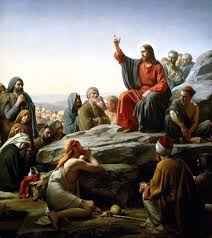
Seek Ye First The Kingdom of God And…
Yeshua instructed us to pursue those things that qualifies one to receive and enter the Kingdom of God and the righteousness of YHVH our Elohim. So how does Torah-keeping fit in with Yeshua’s instruction?
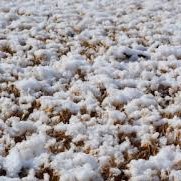
Torah Portions-The Many Types and Patterns of Torah
Returning from the Fall Feasts, we anxiously launch into a new season. Today we examine the two predominant-types of Torah Portions followed by Hebrew Rooters; I reflect upon our 2019 Sukkot experiences; and we examine some patterns and types found in Torah.
Preparing for the Feasts of God-2019–The Connection Between Grace and the Fall Feasts
As we approach the Fall Feasts of 2019, we are compelled to prepare spiritually and physically for each Feast’s arrival. In this discussion of the Fall Feasts, we discuss the connection between God’s grace and His Fall Feasts.
Paul’s Bold Stand Against Anti-Torah Teachings in the Ephesian Church—Part 15 of the Paul and Hebrew Roots Series
Why did Paul insert the creation story and the fall of man into 1 Timothy? Was it, as convention erroneously teaches, the reason women must not teach and preach in the Church? The answer to this question will shock you and cause you to appreciate battle Paul faced against Gnosticism in the Ephesian Assemblies of Messiah. This is Part 15 of our Paul and Hebrew Roots Series.
Paul Never Prohibited Women Teaching and Preaching in Church–Part-14 of the Paul and Hebrew Roots Series
The so-called Church over the centuries has used 1 Timothy 2:11&12 as the basis for their imposed prohibition against women teachers and preachers in the Body of Messiah. But we will show that his passage in no way prohibits women from fulfilling their call and giftings in the Body and Assemblies of Messiah.
First-Timothy—Paul’s Inconsistencies—Myths-Tales-Torah—Part-13 of the Paul and Hebrew Roots Series
In continuing our Paul and Hebrew Roots series, we look at seeming inconsistencies in Paul’s writings as well as examine the role myths and tales played in the teaching of Torah in the Ephesian Assemblies.
Modern Day Idolatry-God Approved Foods-Torah Keeping-Tithing–Reflections on Torah Portion Re’ eh
This week’s Torah Portion entitled ‘Re’eh’ is a rough sketch of the inner workings of the Kingdom of God: no idolatry-proper foods-the keeping of Torah-giving of Tithes–As we prepare to possess the Land of Promise.
Obedience to Torah-Marked for Destruction-The Wisdom of Wearing Phylacteries-Reflections on Torah Portion ‘Ekev
In this installment of TMTO, we reflect upon Torah Portion ‘Ekev–highlighting the importance of obedience to Torah–what nations were marked for destruction by YHVH and why–and the wisdom of wearing phylacteries by Torah observant believers in Yeshua Messiah.
1 Timothy-The Properly Attired Praying Woman-Part-12 of our Paul and Hebrew Roots Series
In this installment of our Paul and Hebrew Roots series, we consider Paul’s instructions regarding properly attired praying woman. We explore the significance of prayer in the early Church and the fact that Paul sought to use prayer as one of his first tactics against the scourge of early Gnosticism that had infiltrated the Ephesian assemblies of Messianic Believers. And we find clearly layed out in 1 Timothy that Paul advocated women leading worship and corporate prayer in the assemblies. Shalom and welcome.
First Timothy-Paul’s War Strategy Against Gnosticism-Part-11 of the Paul and Hebrew Roots Series
“As I counseled you when I was leaving Macedonia, stay on in Ephesus, so that you may order certain people who are teaching a different doctrine to stop. Have them stop devoting their attention to myths and never-ending genealogies; these divert people to speculating...
Let the Woman Learn in Silence-The Problem With First Timothy-Part 10 of the Paul and Hebrew Roots Series
1 Timothy 2:9-15 has been used by churchianity for years to prohibit women of Faith from doing what they were called to do. In this 10th installment of our Paul and Hebrew Roots series we dispel this false practice and understanding by examining the Truth of what Paul was truly saying in his letter to Timothy.
Phineas’ Covenant of Peace—Our Road Map to Peace in Messiah—Reflections on Torah Portion Pinchas
Peace is the birthright of every disciple of Y’shua Messiah. Yet so many of us lack true peace in our lives. What if I tell you that this week’s Torah Portion Pinchas provides a road map to peace in Messiah? Would you be interested? Come and let us reason together in the Word of our Elohim. Shalom and welcome.
Social Media and Hebrew Roots-A Warning to Discern Who’s Who in the Social Media Zoo
Most of us who are members of the True Faith Once Delivered, have one or more social media accounts. Many of us share our Faith convictions and or even minister on these platforms. But Social Media, like Hebrew Roots, can be likened to the Americana images of the...
A Little Balaam in Each of Us–Reflections on Torah Portion Balak
Can the character and principles of the prophet for profit Balaam be found in each of us. You may be surprised at what Scripture has to say about that. Welcome to The Messianic Torah observer and our reflections on Torah Portion Balak. Shalom and welcome.
Pray For The Peace of Jerusalem-Part 3 of the Love or Hate Israel Series
What does it mean to pray for the peace of Israel? We discuss also Israel in terms of her covenant-relation with God as well as her significance in end times prophecy.
Rebels in the Congregation-Reflections on Torah Portion Korah
As we examine Torah Portion Korah we learn about the potentially rebellious condition of our hearts; the importance of living holy lives; and the dangers of false teachers and their teachings to the Body of Messiah.
One Law For All–Reflections on Torah Portion Shelach Lekha
The Giver of Torah-YHVH-clearly stated that Torah was for all who would attach themselves to the commonwealth of Israel and live according to the Way He prescribed for men and women to live. Yet many within and without our Faith Community teach otherwise--that Torah...
Messianics—Modern Day Levites—Separated for Service to God—Thoughts and Reflections on Torah Portion Behaalosecha
This week’s Torah Portion-Behaalosecha-foreshadows a great many spiritual elements necessary for our service to the Kingdom of God. In a sense we are modern day Levites. We have been separated from all the nations people of the world unto God for His service. Are we up for the challenge? This is a wake-up call to the Body of Messiah to take immediate action.
Israel: To Love or Hate Her—That is the Question—Part 2–A Biblical and Personal Perspective on the Significance of Physical Israel
In this 2nd Part to our Israel: To Love or Hate Series, we continue our analysis of some the most common reasons people reject physical Israel today. As well as we consider some of the miracles said to have resulted in Israel’s deliverance from certain destruction. And lastly we consider the problems associated with the nation state of Israel. Shalom and welcome.
Burdens and Service-Thoughts and Reflections on Parashot Naso-Lift Up
Lessons of bearing burdens and service to YHVH are embodied in this week’s Torah Portion Naso. As disciples of Messiah, we are compelled to serve and bear burdens as we discuss in this post.
5-Facts About Pentecost [Shavuot] Every True Disciple of Messiah Should Know
As the Day of Pentecost (aka, Shavuot) descends upon many of us who are of Faith in the coming days, we reflectively prepare for the Day. With that preparing in mind, today I will reveal 5-things every spirit-filled disciple of Yeshua Messiah should know about Shavuot—Pentecost.
To Love Or Not Love Israel?That is the Question–Part 1
As Yeshua-focused Torah Keepers, how are we to view physical Israel? We discuss this polarizing issue from a historic, biblical and personal perspective. Shalom and welcome.
Shemittah and Jubilee-Shadows of the Rest, Redemption and Freedom We Have in Messiah
This week’s Torah Reading/Portion entitled B’Har is a message of the rest, redemption and freedom we have in Y’shua Messiah.
10-Things You Must Do To Improve Your Understanding of the Bible
In this installment of TMTO, I outline 10-things you can put into practice today that will drastically improve your understanding of the Bible.
Being Holy in the Midst of an Evil and Adulterous Generation
This week’s Torah Portion was timely indeed. As we are presently living in perilous times, this week’s Torah Portion challenges us to live holy lives in Messiah. We explore what it means and how to live holy lives.
Passover and the Feast of Unleavened Bread Replay
In light of this weekend’s Passover observance and our week’s longing keeping of the Feast of Unleavened Bread, I elected to repost a teaching I posted last year on Passover and the Feast of Unleavened Bread. Chag Pesach Sameach. Shalom.
Keeping God’s (Yehovah’s) Feasts
I give an overview of the Creator’s Feasts by discussing why we keep them; when we keep them and what they mean. Shalom and welcome.
M’tzora-Person Afflicted With Leprosy-Torah Portion 28-Commentary
Parashah 28-M'tzoro--Person Afflicted With Tzara'at Continuation This week's Torah Portion/Reading entitled "M'tzoro," or a "Person Afflicted with Tzara'at (Leprosy)" is somewhat of a continuation of last week's reading (ie., Tazaria) that dealt with the diagnosis and...
Tazria (She Conceives)-Leprosy, A Shadow of Sin and the Healing Work of Messiah–Parashah-27
In this week’s Torah Portion entitled Tazria, we consider the spiritual applications of leprosy.
How to Keep (Guard) the Month of the Aviv–Replay
In this replay of a past episode, we discuss how to keep–how to guard the Month of the Aviv. Happy New Year! Shalom.
Irresistible Holiness-Torah Portion-26-Eighth-Shi’mini–TMTO-23
What Father is essentially saying here to us through this shadow picture—this lesson—this Torah Portion—is, “Look, I’m going to get the glory and my holiness is going to be proclaimed and demonstrated to all the world. Now this can be done by and through your actions of obedience and worship of me. And if you choose to glorify me and extol the virtues of my holiness to the world, you’re going to have to do it my way. For if you don’t choose to do it my way, then I’m still going to get the glory and my holiness will be demonstrated and manifested through my chastising of you. You see, it’s going to be done my way; or it’s going to be done my way. Either way, I’m going to be glorified and deemed holy to all the world.”
Torah Portion 25–Give An Order–A Call To Worship
This week’s Torah Reading-Parashah-25–dealt with sacrifices and offerings. These were shadows of our worship of Father in Spirit and in Truth.
Let Your Women Keep Silence in the Church–Part-9 of the Paul and Hebrew Roots Series
We break down 1 Corinthians 14:34-35 to determine what Paul really meant when he instructed that the Corinthian women keep silence in the church.
Patterns of Evidence-The Moses Controversy Film Review
In this 21st installment of The Messianic Torah Observer, I review Tim Mahoney’s newest documentary, “Patterns of Evidence-The Moses Controversy.”
Thoughts and Reflections on Torah Reading Pedudei-Accounting Of
This week's Torah Reading entitled Pedudei (ie., Accounting Of) focused on worship. The reading consisted of Leviticus 1:1 to Lev. 5:6:7. The Haftorah consisted of Isaiah 43:21-44:23. Specifics of Worship That which was given to us by Abba related to worship...
TMTO-20-Endure Sound Doctrine I Will Not
Many members of the Body of Messiah will not endure sound doctrine as they are being led astray by false teachers or they themselves are teaching false doctrine. We discuss this troubling situation and provide ways to overcome the deception.
The Un-Silenced Women of Paul’s Ministry-Part 8 of the Paul and Hebrew Roots Series
Many female leaders were associated with the Apostle Paul’s ministry. We highlight some of those great first-century women of the Body of Messiah.
When Evil is Considered Good–The Hypocritical, Evil and Demented Mindset of America Today
What are the challenges facing today’s Torah Observant Disciple of Yahoshua in America Today?
The Unsilenced Women of the Bible-From Torah to the Conversion of Paul-Part 7 of the Paul and Hebrew Roots Series
The Pauline Passages of Question So as to re-establish or restate the issue at hand as it relates to Paul’s views about women in the Body and Assemblies of Messiah, the primary passage in question is as follows: “Let your women keep silence in the...
Parashat Mishpatim Judgment-Property and Love of Neighbor
This Week's Torah Reading In continuing my travels through this week's Torah Reading, I came upon Exo. 21:28-36. I found endless truths and spiritual applications that I am so happy to share with you today. The Consequences of Negligence This passage in a narrow sense...
Parashat Mishpatim Judgment-Murder-Abortions-Sanctuary
Timeliness of This Week's Torah Reading This week’s Torah Reading could not have been more timely. And I was compelled to respond in the wake of the news we’ve received over the last couple weeks regarding the legalization of late term abortions on demand. And just...
Parashat Mishpatim or Judgments-Debt and Slavery
Concerning the Treatment of Slaves by Hebrews The first portion of this week's Torah Reading deals with the issue of Hebrews owning slaves; particularly Hebrew slaves (Exo. 21:1-11) . According to this passage, if a Hebrew acquires a Hebrew slave, they would serve...
To Call or Not Call on the Name of the LORD
What Does it Mean? What does it truly mean for a would-be disciple of Jesus Christ (ie., Yahoshua Messiah) to call on the Name of the L-rd? Is it simply an utterance whereby the would-be disciple utters or invokes the actual Name or Title of the Divine One? Or is it a...
Paul-Emancipator or Subjugator of Women-Part 6 of the Paul and Hebrew Roots Series
This is Part 6 of our multi-episodic series on Paul and Hebrew Roots. This installment is entitled: “Paul: Emancipator or Subjugator of Women.” I Corinthians 14:34, 35, and 1 Timothy 2:11,12 have long challenged my sensibilities and understanding of how women are to...
No Pagan Links to Catholicism and Christianity
Pagan Links to Catholicism and Religion in Doubt I have, of late, become somewhat concerned over what I see as growing support by a good many leaders within and without our Faith for there being no pagan links to Catholicism and Protestant Christianity. And how are...
Paul Opposing God On Issue Of Circumcision?
A Matter of Circumcision or No? As I was watching Kenny Russell's (Bulldozer Faith) most recent Sabbath teaching entitled "Press On!," the text of which he based his message being Philippians 3, I became fixated on verses 2 and 3 of that chapter. It is here that Paul...
My Last Word on the Cepher Bible and the Divinity of Yeshua–At Least Till Next Time
Why Discuss the Cepher Bible Yet Again So I elected to do a rather quick reiteration--albeit last word on the Cepher Bible and the Divinity of Yeshua. At least, until the issue comes up, let's just say. Over the last year or so I've received a number of inquiries...

Paul on Aggadah–Part 5 of Paul and Hebrew Roots Series
Paul on Aggadah—Part 5 of the Paul and Hebrew Roots Series Let us quickly recall from Part 4 of this series that Aggadah is that unseen/invisible aspect of our lives that prompts or influences or even controls our behavior; in particular,that inward motivation, zeal,...
The Meaning Behind The Recent Dedication of an Altar in Jerusalem
If you’ve been keeping up with world news of late, you may know (or not) that the resurrected Great Sanhedrin, headquartered in Jerusalem, sanctioned a Levitical offering of a previously sacrificed lamb upon a practice altar somewhere in Jerusalem. (Yes, there really...
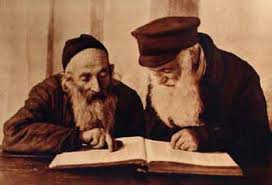
Paul on Halakhah and Aggadah–Part 4 of the Paul and Hebrew Roots Series
Paul on Halakhah and Aggadah Last installment, or Part 3 of this series, I introduced to you the Hebrew concept of Halakhah. In that discussion, I attempted to not only define what halakhah meant, but I also attempted to convey the significance of...
A Biographical Portrait of the Pre-Converted Paul and Halakah–Part 3 of the Paul and Hebrew Roots Series
Review of Parts 1 and 2 of this Series Over the course of the last two installments of this series, we have been laying the groundwork for assembling our portrait of the Apostle Paul prior to his conversion. In the first two-installments we discussed: Why it is...
To Fellowship Or Not Fellowship
A Nagging Question To fellowship with a group of Sabbath-Feast-keepers or not has been a question plaguing me for the last couple weeks. A couple months ago we were invited to fellowship with this group. Now, know that this is NOT a question whether to participate...
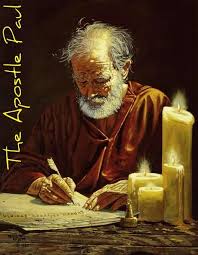
Paul-The Man Beneath the Apostleship–Part 2 of the Paul and Hebrew Roots Series
If you've not already done so, I invite you to listen to or read Part 1--Paul, the Man Beneath the Apostle, before moving in to this installment. Apparent Biblical Contradictions and Controversies Before we address the person of Paul straight-on today, I...

The Apostle Paul–Part 1-The Man Beneath the Apostleship
My Goal For This Series Thank you for joining me for Part 1 of this multi-episodic series on The Apostle Paul. This being part-one of the series, we'll lay the ground-work for understanding the man beneath the apostleship. In succeeding installments,...
Who or What is a Messianic Torah Observer?
Inquiring Minds Want to Know I've received a number of email inquiries over the last couple years from various listeners and readers asking the meaning of the title "The Messianic Torah Observer." Allow me to break this bad-boy down for you. To begin with, I...
The Fall Feasts of Yah-The Feast of Tabernacles-The Feast of Sukkot
And greeting fellow Saints of the Most High Elohim. Welcome to The Messianic Torah Observer. I'm Rod Thomas, your host. And as always, it is my sincerest hope, trust and prayer that this installment of the program finds you, your families and fellowships well and...
The Fall Feasts of Yah–The Day of Atonement–Yom Kippur
The Fall Feasts of Yah and the Torah Observant Disciple of Yeshua As Torah Observant disciples of Yahoshua Messiah we are truly blessed to have the joyous elements of our beloved Faith to keep us focused on the mark of the high calling of Messiah. And as I said...
The Fall Feasts of Yah-Trumpets-Yom Teruah
The Fall Feasts are upon us and the Day of Trumpets (Yom Teruah) has at our doorsteps. What significance do the Fall Feasts and the Day of Trumpets hold for Torah Observant Believers in Messiah? What follows is a brief overview of the Fall Feasts of Yehovah and a...
Tithes and Offerings Related to Torah and Messianics
This week’s Torah Reading touched upon the Firstfruits’ offering and the Tithe. The Firstfruit Offering or Tithe (Dt. 26:1-11) The issue and topic of giving offerings and tithing are always controversial, both within and without our Faith Community. As Torah Observant...
Messianics Engaged in Political and Social Activism
A speaker at a recent prophecy conference denounced apathy in the body of Christ and demanded Christians wake-up from their apathy and engage in political and social activism, so to speak. Given the mixed Faith Communities represented at this conference,...
Torah Portion Re’eh–See–I Set Before You a Blessing and a Curse
Torah Portion Re'eh--(See) I Set Before You a Blessing and a Curse--11:26-16:17 This week's Torah Reading, entitled “Re’eh” or “See—I Set Before You a Blessing and a Curse,” is found in Deuteronomy 11:26-16:17. I found this reading to be rich in...
Torah Portion ‘Ekev–On the Heel Of–Because
This week's Torah Portion (i.e., Reading/Parashat) was entitled, 'Ekev--On the Heel Of--Because. It is found in Deuteronomy 7:12-11:25. [If you follow the Torah Portions or Readings, I invite you to check out my post entitled, "Hebrew Roots and Torah Portions--Are...
Torah-Keeping–When it is Practiced in Sin
This Week's Torah Reading--D'varim This week's Torah Reading was D'varim. A section of it addressed our eventual abandonment of Father's Torah after we were established in the land. As a result of our abandonment of Torah, the land would be overrun by Gentiles and we...
As It Was In The Days of Noah
Do recent advancements in DNA manipulation and Artificial Intelligence portend the return of Yahoshua Messiah? Are they elements of modern day spin-offs to the Days of Noah? Each week it seems, we receive more and more disturbing news about the existential dangers...
Sacred Oaths and Vows–The Wages of Sin–The Spoils of War
In today’s post, I wish to reflect upon elements of this week’s combined Torah Portions entitled Mattot (or Tribes) and Masei (or Journeys). This Portion ends our journeys through the Book of Numbers and sets the stage for our historic and long-awaited conquest of the...
The Red Heifer–Parashah 39–Hukkat–Numbers 19
I pray that you had a meaningful Sabbath Rest. This week's Torah Portion was yet again an amazing journey into the Things and Ways of YHVH that defy anything that humanity could ever imagine. This 39th Portion addresses the "Mystery of the Red Heifer," which is a...
Hebrew Roots and Torah Portions–Are Torah Portions Valid for Messianics
I have always been one to think: if one person has a question on a particular topic or issue that I have posted on this program, it stands to reason that there are others out there who have the same question. Recently I received feedback from a dear listener of this...
Messianic Lessons From The Revolt of Korah
The Players of this Torah Portion The players of this passage are: Moshe, Aharon (Cohen Gadol); Korah (a Levite of which he and his family and lineage served with the Aaronic Levitical Priesthood--he was not a priest but a most blessed assistant and servant to YHVH);...
Impediments to our Faith-Absence of Discipleship and the Holy Spirit Operating in the Lives of Believers (Part 2)
It goes without saying that many of us have a difficult time grasping the things of YHVH, especially when we first transition into our Faith Community. It’s one thing to decide to give up pork and shell fish and to start worshiping on Sabbaths as opposed to...
Yeshua Messiah (aka Jesus Christ) as our Apostle and High Priest
During my morning studies today I was led to pick up where I left off from this past Sabbath's Brit HaDashah reading that is found in Hebrews 3:1-6. Interestingly enough, roughly 1-1/2 to 2 hours after beginning the study, I had not progressed beyond verse one. For...
Messianics Dedicated to Service
This Week's Torah Portion-Beha'Alotekha-The Menorah On this Shabbat, I was blessed to read and reflect upon this week's beautiful Torah Portion entitled Beha'Alotekha-The Menorah. The portion was contained in Numbers, chapters 8 through 12, And I don't know if it's me...
Impediments to our Understanding Things of the Faith–Part-1–Understanding the Bible
Many of us have a hard time grasping the things of YHVH. There seems to be impediments to our receiving, understanding and applying the things of our Faith. Indeed, there are many impediments that we could explore. However, for this post we will consider those...
The Torah Observant Believer in Yeshua Messiah as Slave
Paul opens his letter to the assembly of Messianic Believers in Rome with an introductory bio of himself. He writes: "Paul, a bond-servant of Christ (i.e., Messiah) Yeshua, called as an apostle, set apart for the gospel of God (i.e., Yah)..." (Romans 1:1; NASB). Other...
Keeping Shavuot–The Feast of Weeks–Pentecost–Its Importance and Meaning to Messianic Believers Today
For the Torah Observant Believer in Yeshua Messiah, Shavuot—The Feast of Weeks—Pentecost is about the giving and receiving of YHVH’s Torah and the establishing of the marriage covenant between YHVH and the Children of Israel. The Feast of Weeks is about...
Living a Life Beyond the Norm–Lessons Learned from the Levitical Priesthood
Organizations establish standards by which its members' job performances are judged. There are set standards and job performance levels that separate an average from an exceptional worker. A member's job performance when compared to those standards may determine that...
Biblical Illiteracy Behind the Anti-Hebrew Roots Agenda
Is Biblical Illiteracy behind the Anti-Hebrew Roots Agenda these days. In this post I reflect upon a recent experience I had on Facebook that suggested to me that Biblical Illiteracy may, in part, be behind the animus Christians have towards our Hebrew Roots/Messianic...
A Call for Unity in the Body of Christ/Messiah
By virtue of our role as disciples of Yahoshua Messiah (Jesus Christ), we are called to be a united and unified body of believers in every respect. Just as Master was united with His Father, we too must be united with the Father, our Master and with one...
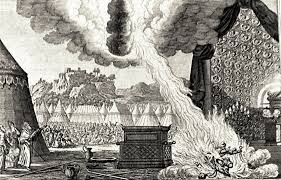
When Tradition Eclipses Torah
My Torah Portion Observation of the Week I was profoundly moved by the section of this week’s Torah portion that recorded what on the surface seemed the very harsh and violent encounter we had with YHVH. It was Parashah 26: Sh’mini, Eight and I wish to briefly...
Day of Firstfruits and Keeping the Sabbath Holy
Keeping the Day of Firstfruits The Day of Firstfruits is a little known or publicized feast in our Faith Community. Firstfruits is also referred to as Yom haBikkurim (Hebrew) and the Wave Sheaf Offering. It is sandwiched into the week of...
Our First Passover–A Survey of Exodus 12 and 13 and How it Applies to Us Today
Passover Like All Feasts are Shadows of “Good Things to Come” Passover and the Feast of Unleavened Bread, embodied and explained to us in Father's Torah, was aptly described by the writer of the Book of Hebrews as "Shadows of Good Things to Come:"...
Select Your Passover Lamb
I'm Reminded I’m reminded when looking over our copy of the Hebrew Observational Calendar that today is the day that we would select the unblemished animal of the first-year that would serve as our paschal lamb. Choosing a Lamb Today Certainly, today, the vast...
Observing and Guarding the Month of Aviv–How to Observe and Guard the Month of Aviv
Torah Instruction to Guard In Deuteronomy 16:1-3 Abba instructed us to “observe (i.e., shamar—guard) the Month of the Aviv,” and keep the Passover unto YHVH our Elohim.” Because in the Month of the Aviv YHVH brought us forth out of Egypt by night. What...
Torah Portions and the Body of Christ (Messiah)
My Love and Concern of Torah Portions I personally love the Torah Portions system for a number of reasons, including reasons associated with connecting with other like-minded Messianic believers who appreciate the Torah Portion system as well. Certainly, there are few...
All Things Are Lawful For Me
"All Things Are Lawful For Me..." (The Apostle Paul to the Corinthian Assembly of Messianic Believers) Well, I’m going to take a slight break from our series on the plurality of the Godhead series to tackle one of the Apostle Paul’s many difficult passages that the...
Are the Father and Son the Same Person (Part 2)–Genesis 1 and Elohim Proof in the Trinity or Not
The question has been posed countless times: Are the Father and the Son one and the same Person? In this second part of the series we reflect on Genesis chapter one, specifically the term/title Elohim in our search for an answer to this question. Pluralists contend...
Are the Father and the Son the Same Person?
The Billion Question In this installment of Sabbath Thoughts and Reflections we will begin tackling one of the biggest and most frequently posed questions by members of our Faith Community: Is the Creator—God—Yahovah/Yahweh/Yahuah and the...
Five Things Every Believer Should Consider About Christmas (104)
Preface Let's consider five things every Messianic should know about Christmas. Indeed, there are numerous other things to consider beyond this simple list of five, but these five constitute a great starting point. Christmas now being upon us, I felt that I would be...
What Does Climate Change Really Mean From A Hebrew Roots Perspective?
Global Warming/Climate Change Make the News Anyone who has kept up with the news over the last decade or so should be somewhat familiar with the subject of "global warming," recently changed to "climate change." In case this subject is a little foggy in your mind,...
Hanukkah and the Torah Observant Believer in Yeshua (Installment 103)
To Observe Hanukkah or Not Observe Hanukkah Today's Thought and Reflections topic is season appropriate and it has to do with Hanukkah and its significance to the Torah Observant Believer in Yeshua. Obviously, some of you do not observe or celebrate Hanukkah, and...
Are We Heading for Heaven or Staying on Earth When Yeshua Messiah Returns? (Installment 102)
Are We Heading for Heaven or Staying on Earth When Yeshua Messiah Returns? Question: Are We Heading for Heaven or Staying on Earth When Yeshua Messiah Returns? In keeping with our renewed aim to include a question and answer session in Sabbath Thoughts and Reflection...
Should Torah-Keeping Believers in Yeshua Celebrate Thanksgiving?
Thanksgiving and the Torah-Keeping Believer in Yeshua Messiah. In this installment, we reflect upon Torah-Keeping Believers in Yeshua celebrating Thanksgiving: Is it a terrible reminder of genocide that New World Settlers brought upon Native American Indigenous...
Understanding our Call and Purpose-The Wilderness Experience
Understanding Our Call and Purpose Through a Wilderness Experience Do you truly understand your call and purpose? Maybe you're a new to the Hebrew Roots/Messianic Faith and you have no idea where to go from here. Or maybe you've been in the Faith for a while but have...
Leaving the Hebrew Roots Faith Lured by Seducing Spirits
Leaving the Hebrew Roots Faith Lured by Seducing Spirits In this installment we reflect upon a recent Zachary Bauer posting related to folks leaving Hebrew Roots after being lured by doctrines of seducing spirits. Taken Aback I was quite taken aback after viewing a...
The 500th Anniversary of the Protestant Reformation
Netsarim/Netsari Defined The term or title Netsari and Netsarim have been making and floating about the Hebrew Roots/Messianic Faith Community for a few years now, slowly catching in popularity and distinction. The reason I use Netsari and Netsarim to refer to us as a...
Feast of Tabernacles 2017 Thoughts and Reflections
What is the Best Way to Witness to Non-Torah-Keepers? Right and Wrong Ways to Witness This is probably one the most frequently asked questions that I have received over the years, and to be honest, there is no true right answer to the question. I do believe that there...
How to Correctly Keep Yom Kippur
How to Correctly Keep Yom Kippur Believers Want to Know How to Keep Yom Kippur Correctly We have brethren in our Faith Community who are seeking Truth and want to understand when and what Yom Kippur is and how to properly observe and celebrate the day. As mature Torah...
Day of Trumpets—Yom Teruah—Rosh Hashanah—Subject to God or to the Rabbis?–STAR-95
The Calender: Friday 9-22-2017—Yom Teruah—Day of Trumpets Sunday 10-1-2017—Day of Atonement—Yom Kippur Friday 10-6-2017 through Friday 10-13-2017—Feast of Tabernacles—Sukkot Commentary: The World is Falling Apart and Coming to an End Although the Day of Trumpets is...
Overcoming the Cares of Life–STAR-94
The Cares of Life—For Some a Daily Challenge; For Others A Frequent Distraction From a general, let’s say, secular standpoint, the cares of life (or cares of this world as interpreted by some Bible translations) are the many elements of everyday...
The Bible-The Answer to Every Concern or the Ultimate Instruction Manual-STAR-92
Thoughts and Reflections Part 1: The Great Book Known as the Bible The Bible--The Holy Writ--The Word--The Word of God--The Sword--The 66-Special--The Book--The Good Book: these and many more are the descriptors and titles of arguably the most famous and well known...
Witnessing to Non-Believers-Is Keeping Torah Even Possible–Is Tithing a Burden–Does Prayer Purify Forbidden Foods–STAR-91
Thoughts and Reflections Part 1: Closing Thoughts on the Issue of Controlling Our Emotions I just want to put forth some closing thoughts on emotions and the problems that emotions can cause us in walking and living out this walk. Episodes 87 through 90, I reflected...
Controlling Our Emotions for the Work of the Gospel–STAR-90
Shabbat Shalom fellow saints in training. Greetings and blessings to you on this day that Yahuah our Elohim has made—one that we were admonished by the psalmist to be glad and rejoice in it. This is especially so given that the Sabbath is a most sacred day to us Torah...
The Rule of Emotions Over the Lives of Certain Christians-STAR-89
Part-1--The Rule of Emotions Over the Lives of Certain Christians In following up with my last Sabbath Thoughts and Reflections post (episode 88—”When Tradition Overrides Truth and Reason”), I explored how some of the traditions of the church (namely the modern...
When Tradition Overrides Truth and Reason–Sabbath Thoughts & Reflection-88
KJV Mark 7:1 Then came together unto him the Pharisees, and certain of the scribes, which came from Jerusalem. 2 And when they saw some of his disciples eat bread with defiled, that is to say, with unwashen, hands, they found fault.1 3 For the Pharisees, and all the...
Making a Case to be Holy–Sabbath Thoughts and Reflections–87
A Case for Holiness As I was conducting my Torah studies week-before-last, I came to Exodus, chapter 19. This of course, is a well-known passage of Torah to our community, for it is the place that marks that point in our history that we officially received our...
Why Aren’t We Wearing Tzitzits or Fringes?
38 "Speak to the sons of Israel, and tell them that they shall make for themselves atassels on the corners of their garments throughout their generations, and that they shall put on the tassel of each corner a cord of blue. 39 "It shall be a tassel for you 1to look at...
Post Passover–Feast of Unleavened Bread Thoughts and Reflections–STAR-85
This is Sabbath Thoughts and Reflections—Episode 85—My Post-Passover-Feast of Unleavened Bread Thoughts and Reflections Greetings fellow Saints in Training. I am trusting that this episode of Sabbath Thoughts and Reflections finds you, your families and...
Interpreting the Bible Literally and Eating Unleavened Bread for 7-Days?
Feast of Unleavened Bread--Thus Saith the LORD! As is my typical custom during this time of the Biblical Calendar year, i read and re-read Torah's account and instructions regarding the Passover. What I especially enjoy doing, though, is reading entire passages of...
One of the Greatest Passover Mysteries of the Ages Revealed-STAR-84
The Greatest Passover Mystery of the Ages is Found in the Knowledge and Understanding of Who Yeshua HaMashiyach Is. For some strange reason, a rather sizable chunk of Rooters seem to be more focused upon the mechanical observance of Passover than upon the revealed...
Operating Effectively as a Disciple of Master Yeshua Today–Episode-83
Before moving in to the focal point of this thoughts and reflections episode, I want to first touch upon one housekeeping item if you don’t mind. Last week on 3/29/2017, we began a new calendar year. We celebrated--or should have celebrated, Biblical Rosh...
Is Cooking on the Sabbath Prohibited by God and Torah-Pastors in a Credibility Crisis-STAR-82
Calendar: Just 1-1/2-weeks out from Rosh haShanah presuming the barley is Aviv and the renewed moon is sighted over the land of Israel concurrently. Rosh haShanah is the Torah Observant Believer in Yeshua Messiah's New Year Day! and signals the start of the Spring...

Identity Crisis in Hebrew Roots–Sabbath Thoughts and Reflections–Episode-81
Now then, if you will indeed obey My voice and keep My covenant, then you shall be My own possession among all the peoples, for all the earth is Mine; and you shall be to Me a kingdom of priests and a holy nation...But you are A CHOSEN RACE, A royal PRIESTHOOD, A HOLY...

Hebrew Roots Worshiping God in Spirit and in Truth
Hebrew Roots Worshiping God in Spirit and in Truth Let's reflect upon the topic of worshiping Abba in Spirit and in Truth as it relates to our Hebrew Roots Faith. This will be part 3 of my multi-episode series on operating and walking out this walk in the Spirit. If...
Spiritual Transfer of Power–Sabbath Thoughts and Reflections–Episode-78
"Finally my brethren, be strong in Yahuah and in the power of His might. Put on the whole armor of Yah that you may be able to stand against the wiles of the devil. For we wrestle not against flesh and blood, but against principalities, against powers, against...
Israel and the U.S.-Best of Friends, Right? Sabbath Thoughts and Reflections-Episode 76
Israel and the United States--Best of Friends, Right? This is Sabbath Thoughts and Reflections--Episode 76 By now, anyone who keeps up with world events will know of the most recent United Nations Security Council Resolution. But in case you've been distracted with...
Falling in Love with Christmas all Over Again-Part 2–STAR-75
KJV Jeremiah 10:1 Hear ye the word which the LORD speaketh unto you, O house of Israel: 2 Thus saith the LORD, Learn not the way of the heathen, and be not dismayed at the signs of heaven; for the heathen are dismayed at them. 3 For the customs of the people are...

Falling in Love with Christmas all Over Again Part 1-STAR-74
Are we falling in love with Christmas all over again? This is part 1 of what i hope will be just a two part series on this issue. Christmas Posing A Crisis of Faith in the Hebrew Roots Community I believe our community is in, at a minimal, what I've chosen to call "a...
Compassion and Yeshua Messiah–Sabbath Thoughts and Reflections-73
Compassion and Yeshua Messiah Part 2 of my Divinity of Yeshua Messiah Series--Sabbath Thoughts and Reflections Episode 73 In this episode of Sabbath Thoughts and Reflections, I wish to examine the the Godly attribute of Compassion and Yeshua Messiah. This topic stems...
The Divinity of Yeshua Messiah-Part 1
The Divinity of Yeshua Messiah-Part 1 Sabbath Thoughts and Reflections-72 Visitor’s Comment on the Cepher Bible Episode A few weeks ago I received a comment from a visitor to themessianictorahobserver.org that I felt needed to be aired and discussed. The commenter was...
Sharing Hebrew Roots with Christians—The Lunar Sabbath Debacle—America Spotlighted in Deuteronomy 32
Sabbath Thoughts and Reflections Episode 70 Day of Atonement Just a day or so out from Day of Atonement (aka Yom Kippur)—a most solemn day of rest for our Faith where we fast and pray and reflect upon our lives and the past year. Prophets sight this Day of...
Are We Seekers of God or Torah Observers?
Sabbath Thoughts and Reflections-Episode-69 A Probing Question For this episode of Sabbath Thoughts and Reflections, I have been led to share a comment left by a visitor to our website. That comment--more a question than a comment I should say--seemed to call into...
Rejected by Family and the Hebrew Gospel of Matthew–Sabbath Thoughts and Reflections-68
Rejected by Family and the Hebrew Gospel of Matthew Sabbath Thoughts and Reflections-68 Master Yahoshua was rejected by the very people He grew up. All indications are that Master's hometown rejected His Messianic works and wisdom because they could not get past His...
A Broken Heart and Contrite Spirit Gets God’s Attention–Sabbath Thoughts and Reflections-67
A Broken Heart and Contrite Spirit Gets God's Attention A Question of Numbers--Affiliation--Religion--Or Something Else “With all the billions of people in the world—believers and non-believers alike—what makes me stand out from all the others? What makes...
Hollywood and Atheism
Hollywood and Atheism Atheism is Alive and Well in Hollywood I came across an article the other day that just solidifies for me how shallow some of the more elite of us are in our western society. When it comes down to the question of "do you believe in God?" I...
How Must We Deal with a World that is in Chaos–Sabbath Thoughts and Reflections–Episode 66
How Must We Deal with a World that is in Chaos? Sabbath Thoughts and Reflections—Episode 66 Vanity of Vanities for all is Vanity! Well, unless you’ve been completely off the grid—that is, in complete seclusion without access to news of any sort—you are no doubt...
Will the True God of the Old Testament Please Stand-Up–Sabbath Thoughts and Reflections–65
Will the True God of the Old Testament Please Stand-Up? The so-called God of the Old Testament: This is somewhat of the focus of this episode/post. As I completed chapter 24 of Deuteronomy in my Torah studies this week, I came to realize that we serve a most loving...
The Costs of True Discipleship–A Hebrew Roots Perspective–Sabbath Thoughts and Reflections–64
The Costs of True Discipleship A Hebrew Roots Perspective Sabbath Thoughts and Reflections--Episode 64 Opening Passage: 28 For which of you, desiring to build a tower, doth not first sit down and count the cost, whether he have wherewith to complete it? 29 Lest...
What Must Our Focus Be in Hebrew Roots–Sabbath Thoughts and Reflections–63
[podcast src="https://html5-player.libsyn.com/embed/episode/id/4475152/height/90/width/480/theme/custom/autoplay/no/autonext/no/thumbnail/yes/preload/no/no_addthis/no/direction/forward/render-playlist/no/custom-color/88AA3C/" height="90" width="480"] What Must Our...
The Mixing of Seeds in our Faith–Sabbath Thoughts and Reflections–Episode-62
[podcast src="https://html5-player.libsyn.com/embed/episode/id/4455245/height/90/width/480/theme/custom/autoplay/no/autonext/no/thumbnail/yes/preload/no/no_addthis/no/direction/forward/render-playlist/no/custom-color/88AA3C/" height="90" width="480"] The Mixing of...
The Value of Life According to Yahovah–Sabbath Thoughts and Reflections 59
[podcast src="https://html5-player.libsyn.com/embed/episode/id/4423863/height/90/width/480/theme/custom/autoplay/no/autonext/no/thumbnail/yes/preload/no/no_addthis/no/direction/forward/render-playlist/no/custom-color/88AA3C/" height="90" width="480"] The Value of Life...
Pope Francis and the Spirit of Anti-Messiah–Sabbath Thoughts and Reflections–Episode 58
[podcast src="https://html5-player.libsyn.com/embed/episode/id/4405449/height/360/width/480/theme/standard/autoplay/no/autonext/no/thumbnail/yes/preload/no/no_addthis/no/direction/forward/" height="360" width="480"] Pope Francis and the Spirit of...
Counting Omer and a Question of Circumcision–Sabbath Thoughts and Reflections Episode 57
[podcast src="https://html5-player.libsyn.com/embed/episode/id/4384332/height/360/width/480/theme/standard/autoplay/no/autonext/no/thumbnail/yes/preload/no/no_addthis/no/direction/forward/" height="360" width="480"] Counting Omer and a Question of Circumcision...
The World Loves Baal (aka Nimrod)–Sabbath Thoughts and Reflections–Episode 56
The World Loves Baal (aka Nimrod) Sabbath Thoughts and Reflections--Episode 56 In this episode of Sabbath Thoughts and Reflections, I reflect upon the realization that the world loves Baal (aka Nimrod). This comes to mind in light of a couple YouTube videos that I...
10-Key Teachings of Yeshua Messiah Leading Up To Passover–Sabbath Thoughts and Reflections 55
10-Key Teachings of Yeshua Messiah Leading Up To Passover Sabbath Thoughts and Reflections--Episode 55 The week leading up to His sacrifice on the execution stake, Yeshua Messiah delivered a number of key teachings to us, contained in the Gospel Record. I selected 10...
Purim–The Providence of God–Sabbath Thoughts and Reflections Episode 54
Purim--The Providence of God Sabbath Thoughts and Reflections--Episode 54 In Purim-The Providence of God: Then Mordekai commanded to answer Hadassah: “Think not with yourself that you shall escape in the king’s house more than all the Yahudiym. For if you altogether...
Purim–Mourning in Sackcloth and Ashes–Sabbath Thoughts and Reflections 52
Purim--Mourning in Sackcloth and Ashes Sabbath Thoughts and Reflections 52 Well, we can say that we’re still in the Purim season as we work through the latter half of this Adar Bet—the 13th Month of the Biblical Calendar year—and I would refer you to STAR...
Is the Hebrew Roots of the Christian Faith in a State of Crisis? STAR 50
Is the Hebrew Roots of the Christian Faith in a State of Crisis? Sabbath Thoughts and Reflections Episode 50 Well, I have to tell you, I was hard-pressed and set to continue with the Purim series for this posting when I got tangled up with thoughts on the...
What do you Mean the Barley is not Aviv? Sabbath Thoughts and Reflections 49
GUARD the month of Aviyv, and keep the Pecach unto Yahovah your Elohim: for in the month of Aviyv, Yahovah your Elohim brought you forth out of Mitsrayim (that is Egypt) by night. (Deuteronomy 16:1) as I am publishing this episode, which I believe to be a very...
Purim-Haman, the Anti-Christ (aka Anti-Messiah) Cometh–STAR-48
Purim-Haman, the Anti-Christ (aka Anti-Messiah) Cometh Sabbath Thoughts and Reflections-48 Chapter 3 Verse 1 (cf. 5:11) Haman is advanced by Achashverosh to the rank, according to JFB, of vizier or prime confidential minister Achashverosh establishes Haman’s authority...
Thoughts and Reflections on Purim–Yahovah’s Providence Over the Will of Man and Satan–Sabbath Thoughts & Reflections 47
Thoughts and Reflections on Purim--Yahovah's Providence Over the Will of Man and Satan Sabbath Thoughts & Reflections 47 As I reflect and put together this episode, we find ourselves on the 11th Day of the 12th Biblical Month known to some as Adar. The next...
The Cepher Bible–A Violation of Torah? Sabbath Thoughts and Reflections 46
The Cepher Bible--A Violation of Torah? Sabbath Thoughts and Reflections Episode 46 Therefore let no one pass judgment on you in questions of food and drink, or with regard to a festival or a new moon or a Sabbath. These are a shadow of the things to come, but the...
Praying to the Man Upstairs? Really? Torah Living Daily Challenge–Episode 35
Praying to the Man Upstairs? Really? Torah Living Daily Challenge—Episode 35 As I was driving into the office this morning, I was listening to one of Southern California’s 24-7 news radio stations as I often do to get a sense of what’s happened in the world over...
Spiritual Darkness in the Desert–Sabbath Thoughts and Reflections 45
Spiritual Darkness in the Desert--Sabbath Thoughts and Reflections 45 Territorial Spirits in Las Vegas? Biblical Calendar The writer of Psalms got this principle and I believe it is only by the Ruach--the Spirit--of the Most High that he was led to write this...

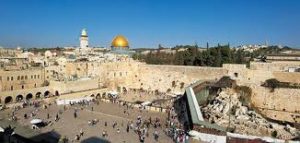
0 Comments